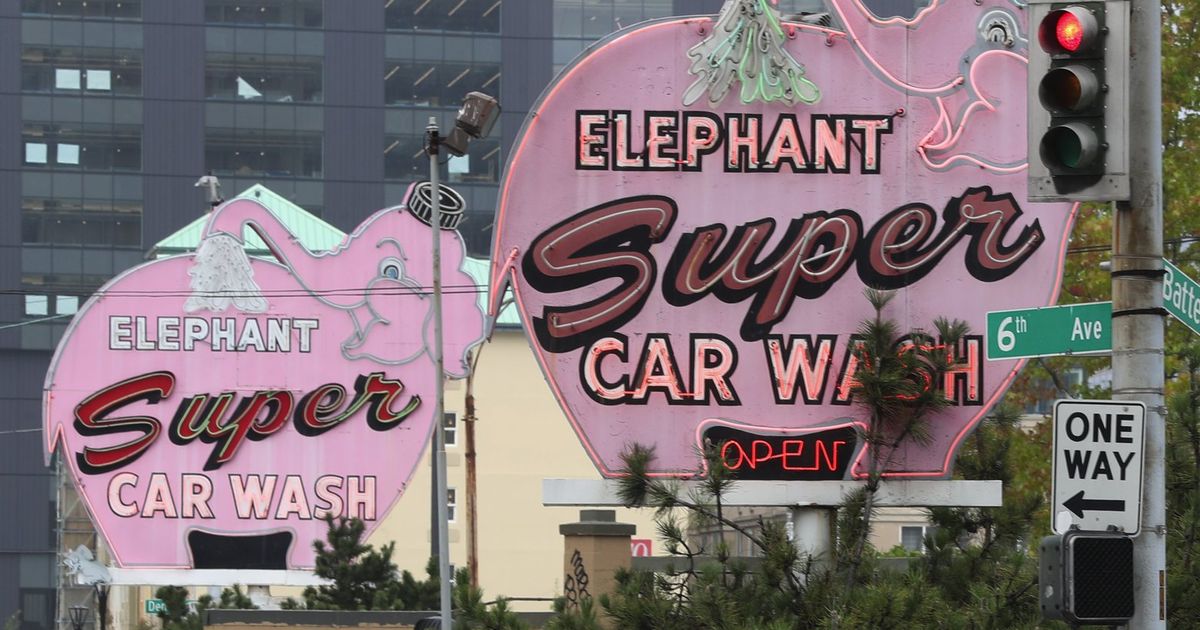
Seattle’s skyline is dotted with iconic structures, each whispering stories of the city’s vibrant past and present. Some are grand architectural marvels, while others are simple, yet unforgettable landmarks etched into the collective memory of generations. These aren’t just buildings or monuments; they’re cultural touchstones, instantly recognizable symbols of a particular place and time. They represent more than brick and mortar; they embody the spirit and soul of Seattle.
Think of the Space Needle, a futuristic spire that defined Seattle during the 1962 World’s Fair and continues to captivate visitors today. Or the Smith Tower, a testament to early 20th-century architectural ambition. These landmarks aren’t just pretty pictures; they’re living history, standing as silent witnesses to the city’s evolution, its triumphs, and its challenges. Their preservation is crucial for maintaining a connection to the past, allowing future generations to understand and appreciate the city’s rich heritage.
Preserving these iconic places isn’t merely about nostalgia; it’s about safeguarding the identity of a city. Landmarks shape the character of a place, making it distinct and unique. They create a sense of belonging and community, providing a shared experience for residents and a memorable impression for visitors. They contribute to the economic vitality of a city, attracting tourism and investment. They can even serve as educational resources, teaching people about history, architecture, and culture.
However, the preservation of these landmarks often requires dedicated effort and advocacy. The forces of change, development, and economic pressure can threaten these beloved icons. Therefore, it is vital for communities to rally and fight to protect these treasures for future generations. This involves raising awareness, lobbying government officials, and securing funding for restoration and maintenance.
Now, a beloved Seattle icon is under consideration for special protection. The community is rallying to make sure a treasured part of Seattle history is recognized. The movement to grant **Landmark status sought for iconic Elephant Car Wash sign** aims to preserve a symbol that has become synonymous with the city’s identity.
The Legacy of the Elephant Car Wash
A Seattle Staple for Decades
The Elephant Car Wash, with its cheerful pink elephant mascot, has been a fixture in Seattle for over 70 years. Generations of Seattleites have grown up seeing the iconic sign, associating it with clean cars, a thriving local business, and a sense of community pride. The business began in 1951 and has been a part of the life of many in the city, creating a memory for all residents.
Over the years, the Elephant Car Wash expanded to multiple locations, becoming one of the most recognizable brands in the region. The pink elephant became a symbol of quality car care, earning the trust and loyalty of countless customers. The business has evolved over time and adapted to changing technologies.
Beyond its commercial success, the Elephant Car Wash has also played an important role in the social fabric of Seattle. It has provided jobs for countless individuals, supported local charities, and contributed to the city’s vibrant culture. Many residents consider the car wash to be a critical part of the community.
The significance of the Elephant Car Wash extends beyond its functional purpose. It has become a beloved icon, a symbol of Seattle’s unique character and its enduring spirit. Its presence has enlivened neighborhoods and created fond memories for residents of all ages. The car wash is not just a business, it is a landmark.
This enduring legacy makes the current effort to designate **Landmark status sought for iconic Elephant Car Wash sign** all the more important. Preserving the sign ensures that future generations can appreciate the history and significance of this Seattle institution.
The Iconic Pink Elephant Sign
The most recognizable feature of the Elephant Car Wash is undoubtedly its iconic pink elephant sign. The neon-lit pachyderm has graced the Seattle skyline for decades, becoming a beloved symbol of the city. It’s more than just an advertisement; it’s a piece of art, a reminder of a simpler time, and a symbol of Seattle’s quirky personality.
The sign’s design is deceptively simple, yet remarkably effective. The bright pink color, the friendly smile of the elephant, and the bold lettering all contribute to its enduring appeal. It’s a design that has stood the test of time, remaining instantly recognizable even as the city around it has changed dramatically.
The sign is a testament to the power of visual branding. It has created a strong association between the Elephant Car Wash and the city of Seattle. When people see the pink elephant, they immediately think of Seattle, clean cars, and a sense of nostalgia.
Many Seattle residents have fond memories of the pink elephant sign. They remember seeing it on family road trips, during their daily commute, or while exploring the city. It’s a landmark that has been a constant presence in their lives, a symbol of home and familiarity.
The unique design and enduring appeal of the pink elephant sign are key reasons why supporters say that **Landmark status sought for iconic Elephant Car Wash sign** is essential. Protecting this visual icon helps safeguard a piece of Seattle’s cultural identity.
The Preservation Effort
Community Support and Advocacy
The effort to secure landmark status for the Elephant Car Wash sign has been driven by a passionate group of community members, preservationists, and local historians. These individuals recognize the sign’s importance to Seattle’s cultural heritage and are committed to ensuring its preservation for future generations.
Community support has been crucial to the success of the preservation effort. Local residents have rallied around the cause, attending public meetings, writing letters to government officials, and signing petitions in support of landmark designation. This widespread support demonstrates the sign’s significance to the people of Seattle.
Preservation organizations have also played a key role in advocating for landmark status. These groups have provided expertise on historic preservation, assisted with the preparation of landmark nomination documents, and lobbied on behalf of the cause. The landmark designations can vary.
Local historians have contributed their knowledge and research to the preservation effort, documenting the sign’s history, its significance to the community, and its role in Seattle’s cultural landscape. Their research has provided a compelling case for landmark designation.
The combined efforts of community members, preservationists, and historians have created a powerful movement to ensure that **Landmark status sought for iconic Elephant Car Wash sign** becomes a reality.
The Landmark Nomination Process
The process of securing landmark status for a building or sign is a complex one, involving extensive research, documentation, and review by local government agencies. The process typically begins with the preparation of a landmark nomination, a detailed report outlining the property’s history, its architectural significance, and its importance to the community.
The landmark nomination is then submitted to the local historic preservation board, which reviews the document and holds a public hearing to gather input from the community. The board considers factors such as the property’s age, its architectural integrity, its significance to local history, and its contribution to the city’s overall character.
If the historic preservation board approves the landmark nomination, it makes a recommendation to the city council, which ultimately decides whether to grant landmark status. The city council takes into consideration the board’s recommendation, public input, and other relevant factors.
If landmark status is granted, the property is protected from demolition or significant alteration without the approval of the historic preservation board. This ensures that the property’s historic character is preserved for future generations.
The process for making sure that **Landmark status sought for iconic Elephant Car Wash sign** adheres to these procedures, ensuring a fair and transparent evaluation of the sign’s significance.
Economic and Cultural Impact
Tourism and City Identity
The Elephant Car Wash sign is more than just a local landmark; it’s a symbol that attracts tourists and contributes to Seattle’s unique identity. The sign has become a popular photo opportunity for visitors, who often share their pictures on social media, further promoting Seattle as a destination.
The sign’s visual appeal and its association with a beloved local business make it a valuable asset for the city’s tourism industry. It’s a landmark that captures the essence of Seattle’s quirky and creative spirit, attracting visitors who are looking for authentic experiences.
The sign also plays a role in shaping Seattle’s identity as a city that values its history and its cultural heritage. By preserving the sign, Seattle demonstrates its commitment to protecting its unique character and its iconic landmarks.
The continued existence of the sign provides a sense of continuity and connection to the past, reminding residents and visitors alike of Seattle’s rich history and its enduring spirit. It serves as a reminder of the city’s evolution and its commitment to preserving its unique identity.
By contributing to the city’s identity, supporters of **Landmark status sought for iconic Elephant Car Wash sign** believe it can further enhance Seattle’s appeal as a tourist destination and a desirable place to live.
Preserving a Piece of Seattle History
Preserving the Elephant Car Wash sign is not just about protecting a visual icon; it’s about preserving a piece of Seattle history. The sign represents the city’s entrepreneurial spirit, its commitment to quality service, and its enduring sense of community.
The sign serves as a reminder of a simpler time, when local businesses were the heart of the community and customer service was a top priority. It represents a time when Seattle was a smaller, more intimate city, with a strong sense of local pride.
By preserving the sign, Seattle honors its past and demonstrates its respect for the businesses and individuals who have contributed to the city’s growth and prosperity. It acknowledges the importance of local businesses in shaping the city’s character and its economy.
The sign also serves as an educational resource, teaching future generations about Seattle’s history and its unique culture. It provides a tangible link to the past, allowing people to understand and appreciate the city’s rich heritage.
Those seeking **Landmark status sought for iconic Elephant Car Wash sign** say they are helping to ensure that future generations can appreciate the sign’s historical significance and its role in shaping Seattle’s identity.
Challenges and Considerations
Balancing Preservation and Development
One of the biggest challenges in preserving historic landmarks is balancing the need for preservation with the demands of development. As cities grow and evolve, there is often pressure to redevelop older properties to make way for new buildings and infrastructure.
In the case of the Elephant Car Wash sign, there may be concerns about the impact of landmark designation on the property’s potential for future development. Some may argue that preserving the sign could limit the property’s economic potential or hinder the city’s overall growth.
However, preservation advocates argue that landmark designation can actually enhance a property’s value and attractiveness. Historic landmarks often become tourist attractions, drawing visitors and generating revenue for local businesses. They can also enhance the character of a neighborhood, making it a more desirable place to live and work.
Finding a balance between preservation and development requires careful planning, open communication, and a willingness to compromise. It’s important to consider the long-term benefits of preserving historic landmarks, as well as the potential economic impacts of development.
The efforts to reach **Landmark status sought for iconic Elephant Car Wash sign** will need to address the development concerns.
Maintenance and Long-Term Care
Securing landmark status is only the first step in preserving a historic property. Ongoing maintenance and long-term care are essential to ensuring that the property remains in good condition for future generations.
The Elephant Car Wash sign, like any historic structure, will require regular maintenance to prevent deterioration and ensure its continued functionality. This may include repairs to the neon lighting, painting, and structural repairs.
Funding for maintenance and long-term care can be a challenge, particularly for privately owned properties. Landmark designation may provide access to grants and other funding sources, but property owners may still need to invest significant resources in maintaining their landmark.
A comprehensive preservation plan, outlining the steps necessary to maintain the property’s historic character and prevent deterioration, is essential for ensuring its long-term survival. The plan should address issues such as routine maintenance, repairs, and potential restoration projects.
Planning for the long-term care of the sign is a vital aspect of the campaign to achieve **Landmark status sought for iconic Elephant Car Wash sign**.
The Future of the Sign
A Symbol of Seattle’s Enduring Spirit
The future of the Elephant Car Wash sign remains uncertain, but the outpouring of community support and the dedication of preservation advocates offer hope that this beloved landmark will be preserved for generations to come.
If landmark status is granted, the sign will be protected from demolition or significant alteration, ensuring that its unique character is preserved. This would be a victory for the community, a testament to the power of collective action, and a celebration of Seattle’s enduring spirit.
The preservation of the sign would also serve as an inspiration for other communities seeking to protect their historic landmarks. It would demonstrate that it is possible to balance the needs of preservation with the demands of development, and that preserving our history can enhance our quality of life.
The Elephant Car Wash sign is more than just a sign; it’s a symbol of Seattle’s past, its present, and its future. It represents the city’s entrepreneurial spirit, its commitment to quality service, and its enduring sense of community.
That is why so many agree that **Landmark status sought for iconic Elephant Car Wash sign** is worth all of the effort.
A Legacy for Future Generations
Regardless of the outcome of the landmark designation process, the Elephant Car Wash sign has already secured its place in Seattle’s history. It’s a landmark that has touched the lives of countless individuals, creating memories and shaping the city’s identity.
Future generations will likely continue to see the sign as a symbol of Seattle’s unique character and its enduring spirit. It will serve as a reminder of the city’s past, its present, and its potential for the future.
The preservation effort itself has created a legacy of community activism and historic preservation, inspiring others to take action to protect the places they love. It has demonstrated the power of collective action and the importance of preserving our cultural heritage.
The story of the Elephant Car Wash sign is a story of Seattle, a story of community, and a story of the importance of preserving our past for the benefit of future generations.
Securing **Landmark status sought for iconic Elephant Car Wash sign** would create a real and tangible monument for future generations.
Conclusion
The story of the Elephant Car Wash sign is a testament to the power of community and the importance of preserving our cultural heritage. Whether or not landmark status is ultimately granted, the effort to protect this beloved icon has demonstrated the deep connection that Seattle residents have to their city’s history and its unique character.
From its humble beginnings as a local car wash to its current status as a Seattle landmark, the pink elephant has captured the hearts of generations. Its cheerful presence has graced the city’s skyline for decades, becoming a symbol of Seattle’s entrepreneurial spirit, its commitment to quality service, and its enduring sense of community. The sign has touched the lives of countless individuals, creating memories and shaping the city’s identity. The push to make sure **Landmark status sought for iconic Elephant Car Wash sign** has underscored the importance of cultural identity.
The effort to secure landmark status for the Elephant Car Wash sign has been a labor of love, driven by a passionate group of community members, preservationists, and local historians. Their dedication and commitment have inspired others to take action to protect the places they love, demonstrating the power of collective action and the importance of preserving our cultural heritage.
The story of the Elephant Car Wash sign is a story of Seattle, a story of community, and a story of the importance of preserving our past for the benefit of future generations. It’s a story that will continue to inspire and inform us as we work to protect the places that matter most to us.
If you enjoyed this article, be sure to check out our other articles on local history, preservation efforts, and the unique landmarks that make Seattle such a special place to live and visit.
- Landmark status sought for iconic Elephant Car Wash sign


